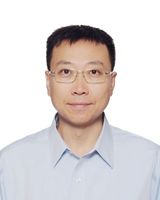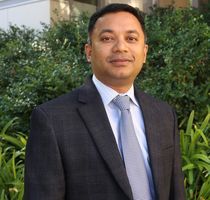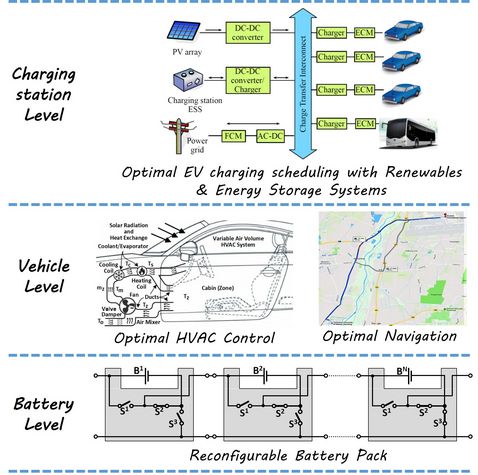Multiscale Real-Time Energy Engineering
Recently, Electrical Energy Storage (EES) systems in the form of high-power battery packs are gaining more importance due to the rapid proliferation of Electric and Hybrid Electric Vehicles (EVs and HEVs) and the widespread adoption of renewable energy sources. Improving the usable energy output and the lifetime of these battery packs are some of the important challenges that are currently attracting a lot of attention. Towards this, several circuit architectures and control strategies have been proposed in the power electronics domain. However, the real-time aspects of EES systems and scheduling techniques for improving the usable energy and lifetime of these battery packs have not been systematically analyzed till now. In the past, task scheduling, resource management and dynamic power management (DPM) for energy management in processors have been studied in the real-time and embedded systems communities. But EES systems open up completely new classes of real-time scheduling problems at multiple scales that have not been studied until now.
"The goal of this special session will be to highlight to the real-time systems research community some of these problems and the opportunities in the domain of Electrical Energy Storage systems"
Towards this, we plan three different talks addressing three different abstraction layers or scales at which real-time energy management and engineering is necessary. These are:
- Battery Level
- Vehicle Level
- Charging Station Level
Battery Level: On battery layer, several reconfigurable circuit architectures have been proposed for dynamically modifying the electrical connection of a battery pack, depending upon the charge levels of the different cells in the pack, load characteristics, and the operating condition of the battery. However, controlling these reconfiguration circuit architectures, i.e., when and how to schedule the actuation of switches in real-time for reconfiguring the battery pack to minimize its overall energy dissipation is still an open question. The first talk will illustrate these problems.
Vehicle Level: On the vehicle layer, optimally scheduling different vehicle sub-systems such as the Heating, Ventilation and Air Conditioning (HVAC), and motor control, or how a route is planned, also impacts the load on the battery pack. These scheduling decisions impact deadline requirements on reaching a destination and also the usable energy and life of the battery in the vehicle. The second talk will focus on these issues.
Charging Station Level: Optimally scheduling the charging of multiple vehicles in a public charging station is also a new problem. Such charging stations might be equipped with multiple renewable energy sources, while also being connected to the electric grid and having their own stationary electrical energy storage systems (stationary battery packs). Which of these sources to use for which vehicle, when to charge the stationary battery packs, and how to invest in the charging station’s infrastructure (battery packs, PV panels) given their changing costs and ageing aspects, also pose difficult scheduling questions. This will be the topic of the third talk.
Finally, the organizer will give a very short presentation introducing this area, the real-time scheduling issues at the different layers (which will be expanded upon in the three talks as outlined above) and also the potential for synergistically solving the problems at the three layers instead of addressing them in isolation.
Session Details
Session Organizer: Prof. Samarjit Chakraborty
Session Chair: Prof. Zili Shao, The Chinese University of Hong Kong
Duration: 1.5 hours (3 talks each 30 minutes)
Session Talks
Talk 1: "Reconfigurable Battery Systems" by Dr. Swaminathan Narayanaswamy, Technical University of Munich
Short Abstract: Recently, applications using high power battery packs such as Electric Vehicles (EVs), Hybrid Electric Vehicles (HEVs) and stationary Electrical Energy Storage (EES) systems are gaining more importance. Battery packs for these applications typically consist of several number of individual cells connected in parallel and in series in order to obtain a higher capacity and voltage, respectively. State-of-the-art approaches focus on a fixed electrical connection scheme between the individual cells to form a high power battery pack. In contrast to this, reconfigurable battery packs that dynamically modify the electrical connection scheme of the individual cells are an emerging alternative. Such dynamic reconfiguration changes the number of cells connected in parallel or in series at real-time depending upon the changes in the load characteristics and the characteristics of the individual cells, in order to provide high energy efficiency, long runtime, fault protection and low battery degradation. Several battery reconfiguration circuit architectures and corresponding algorithms for controlling these underlying circuit architectures have been proposed in the literature. In this talk, an overview of the existing battery reconfiguration techniques including the different circuit architectures, their modeling approaches and software control algorithms will be provided from a real-time perspective. In addition, open challenges in the domain of real-time battery reconfiguration will be explained in detail.
Talk 2: "Optimized Charge and Drive Management for EVs" by Prof. Mohammad Al Faruque, University of California, Irvine
Short Abstract: The assumption of future proliferates the usage of the Electric Vehicles (EV) drives the research to come out new optimized algorithms which can increase the battery life considering all the important factors. We have proposed several algorithms in this regard, such as Optimized Charge and Drive Management (OCDM), Optimized Thermal and Energy Management (OTEM), Adaptive and Cooperative Quality-Aware (ACQUA), those consider important factors such as driving pattern, climate conditions, the temperature of the battery cell, road conditions, HVAC, driving range, etc. to come up with an optimized solution to increase the battery lifetime. All these algorithms use the sensor fused data which are coming from the different sensors such as battery charge sensing device, temperature sensing device, accelerometer, LIDAR, etc. These sensors fused data may deviate from the actual measurements due to the presence of unavoidable noise, aging of the sensing device, unexpected loss of signal, etc. and these unseen scenarios can easily restrain the above algorithms not to reach in the optimum state. To increase reliability, these algorithms should consider the added noise in the sensor fused data and try to come to the optimum state by not hurting the driving comfort. In our very recent work, we propose to apply Extended Kalman Filter with these algorithms to handle the unpredictability of the sensor fused data and make these algorithms more reliable and noise immune. During the talk, we will present these algorithmic advances for optimized charge and EV management.
Talk 3: "Managing EV Charging Stations" by Prof. Sangyoung Park, Technical University of Berlin
Short Abstract: EVs suffer from long charging times and short-drive ranges limiting EV usage to daily short-range commuting rather than general purpose use. Among the candidates for EV charging infrastructures, the public EV charging station architecture has benefits in that it allows an efficient investment of costly equipment, and a long-range travel which requires multiple charging cycles. This paper focuses on an architecture comprising PV panels, an energy storage system (ESS) and multiple fast-DC charging posts. Systematically deriving the optimal planning, i.e. determining the optimal sizes of the components, is a complicated problem as the EV charging station operations and planning are intertwined. In this paper, we derive EV charging station operation policies by formulating an average reward Markov decision process (MDP) maximization problem to synthesize controllers that maximize the operating income. Then, the controllers are used to evaluate the operating income for EV charging station planning. For efficient exploration of the design space, we perform a mixed search-based technique combining the sequential quadratic programming (SQP) and the greedy algorithm. There will be significant gain in terms of long-term operating cost when the costs of ESS and PV panels continue to reduce in the future. Our solution framework is a helpful tool for such reasoning and finding the optimal planning and operation policy of public EV charging stations.
Organizer and Speakers

Organizer: Prof. Samarjit Chakraborty, Technical University of Munich
Prof. Samarjit Chakraborty received the Ph.D. degree from ETH Zurich, Switzerland, in 2003. Since 2008 he is a professor of Electrical Engineering at Technical University of Munich (TUM), where he holds the Chair for Real-Time Computer Systems. Prior to joining TUM, he was an assistant professor of Computer Science at the National University of Singapore from 2003 to 2008. He has lead a research program on embedded systems for electric vehicles at the TUM CREATE Center for Electromobility in Singapore for 5 years, and has extensive research experience in the domains of automotive embedded systems, energy management, and battery systems.

Session chair: Prof. Zili Shao, The Chinese University of Hong Kong
Prof. Zili Shao received his M.S. and Ph.D. degrees from the Department of computer science at The University of Texas Dallas in 2003 and 2005 respectively. He is currently an Associate Professor at the Chines University of Hong Kong (CUHK). Before joining CUHK in 2018, he was an Associate Professor in the Department of Computing at the HongKong Polytechnic University since 2005. His research interests include embedded software and systems, Big data systems, storage systems and related industrial applications.

Speaker 1: Dr. Swaminathan Narayanaswamy, Technical University of Munich
Dr. Swaminathan Narayanaswamy is currently a senior researcher at Technical University of Munich (TUM), Germany. Before joining TUM he has worked for more than 5 years at TUM CREATE center for electromobility in Singapore, which is a joint research center between TUM and Nanyang Technological University (NTU) Singapore. He received his M.Sc. in Integrated Circuit Design jointly offered by TUM and NTU Singapore and his Ph.D. from TUM. His research interest includes battery management systems, power electronics, embedded systems and switched-mode power converters. He has extensive experience in the domain of battery management systems in the context of both electric vehicles and stationary energy storage systems for smart grids.

Speaker 2: Prof. Mohammad Al Faruque, University of California, Irvine
Prof. Mohammad Al Faruque is currently with the University of California Irvine (UCI), where he is an associate professor (with tenure) and directing the Cyber-Physical Systems Lab. He received his B.Sc. degree in Computer Science and Engineering (CSE) from Bangladesh University of Engineering and Technology (BUET) in 2002, and M.Sc. and Ph.D. degrees in Computer Science from Aachen Technical University and Karlsruhe Institute of Technology, Germany in 2004 and 2009, respectively. Prof. Al Faruque is the recipient of the School of Engineering Mid-Career Faculty Award for Research 2019, the IEEE Technical Committee on Cyber-Physical Systems Early-Career Award 2018, and the IEEE CEDA Ernest S. Kuh Early Career Award 2016. He is also the recipient of the UCI Academic Senate Distinguished Early-Career Faculty Award for Research 2017 and the School of Engineering Early-Career Faculty Award for Research 2017. He served as an Emulex Career Development Chair from October 2012 till July 2015. Before that, he was with Siemens Corporate Research and Technology in Princeton, NJ. His current research is focused on the system-level design of Internet-of-Things (IoT), Embedded Systems, and Cyber-Physical-Systems (CPS) with special interests on design automation methodologies, data-driven modeling techniques including machine learning for design, CPS security, etc. His work involves novel hardware and software design for various CPS application areas, including Industry 4.0 (manufacturing), smart-grid, and autonomous vehicles. Prof. Al Faruque received the Thomas Alva Edison Patent Award in 2016 from the Edison foundation and multiple best paper awards in several IEEE/ACM conferences such as DATE, DAC and ICCAD. He is also the recipient of 2015 Hellman Fellow Award, the 2015 Kane Kim Fellowship Award, the EECS Professor of the year 2015-16 Award, and the 2015 UCI Chancellor’s Award for Excellence in Fostering Undergraduate Research. Besides 100+ IEEE/ACM publications in the premier journals and conferences, Prof. Al Faruque holds 8 US patents. Prof. Al Faruque is currently serving as the associate editors of the ACM Transactions on Design Automation on Electronics and Systems and the IEEE Design & Test. He is an IEEE senior member and an ACM senior member.

Speaker 3: Prof. Sangyoung Park, Technical University of Berlin
Prof. Dr. Sangyoung Park is an assistant professor at Technical University of Berlin and Einstein Center Digital Future where he leads the Chair of Smart Mobility Systems. His research focus is on smart mobility systems especially control of battery electric vehicles, their charging infrastructure, and integration with renewable energy sources. He is also interested in utilizing vehicle-2-x communication for controlling vehicle fleets. He got his PhD and BS degrees in Electrical Engineering and Computer Science from Seoul National University, Republic of Korea in 2008 and 2014, respectively. Before joining TU Berlin and ECDF, he was a postdoctoral scholar at Chair of Real-Time Computer Systems, Technical University of Munich. He has won three best paper awards in ACM/IEEE International Symposium on Low Power Electronics and Design (ISLPED), 2017, IEEE International Conference on Computer Design (ICCD), 2017 and International SoC Design Conference (ISOCC), 2009.
